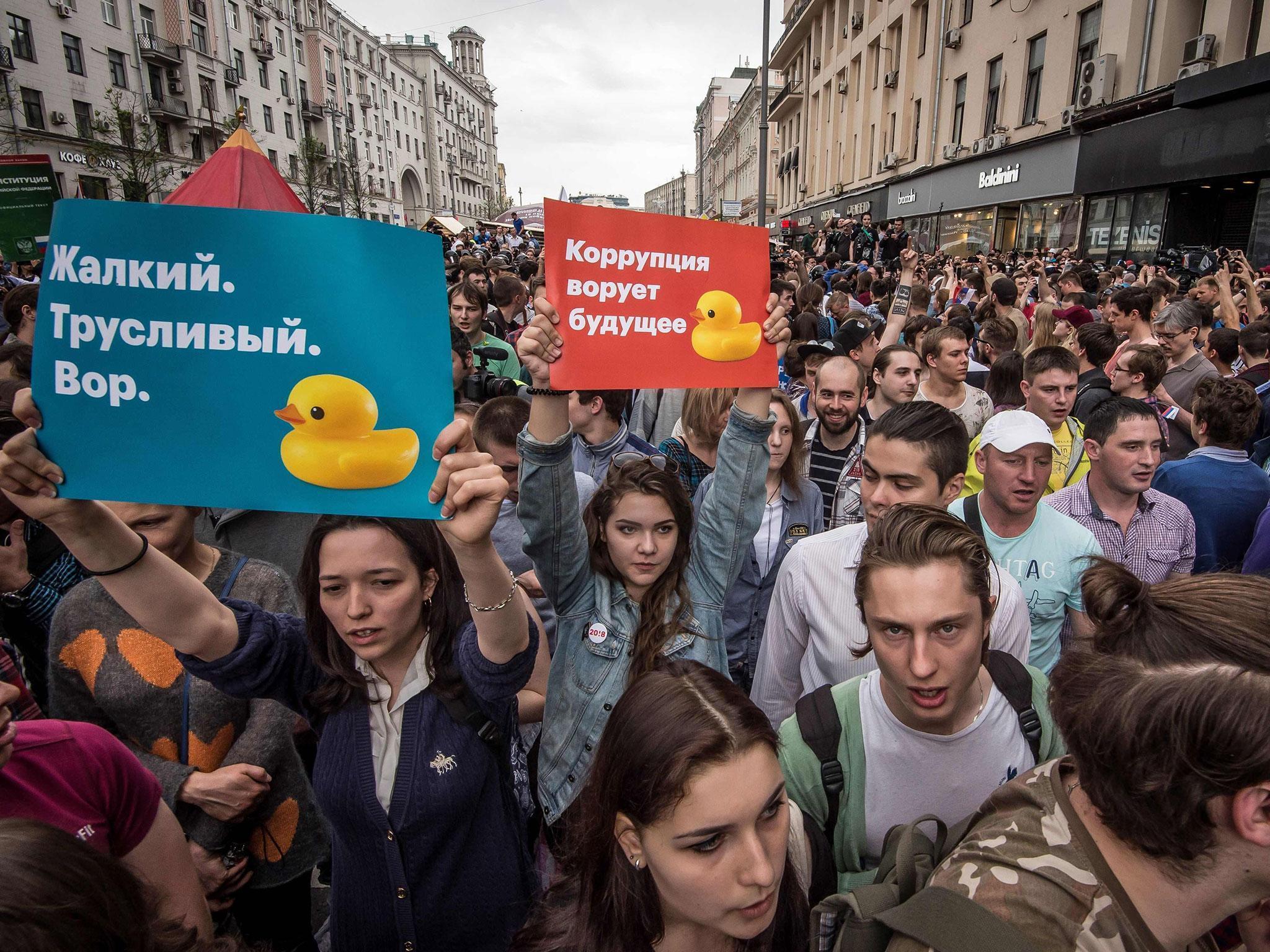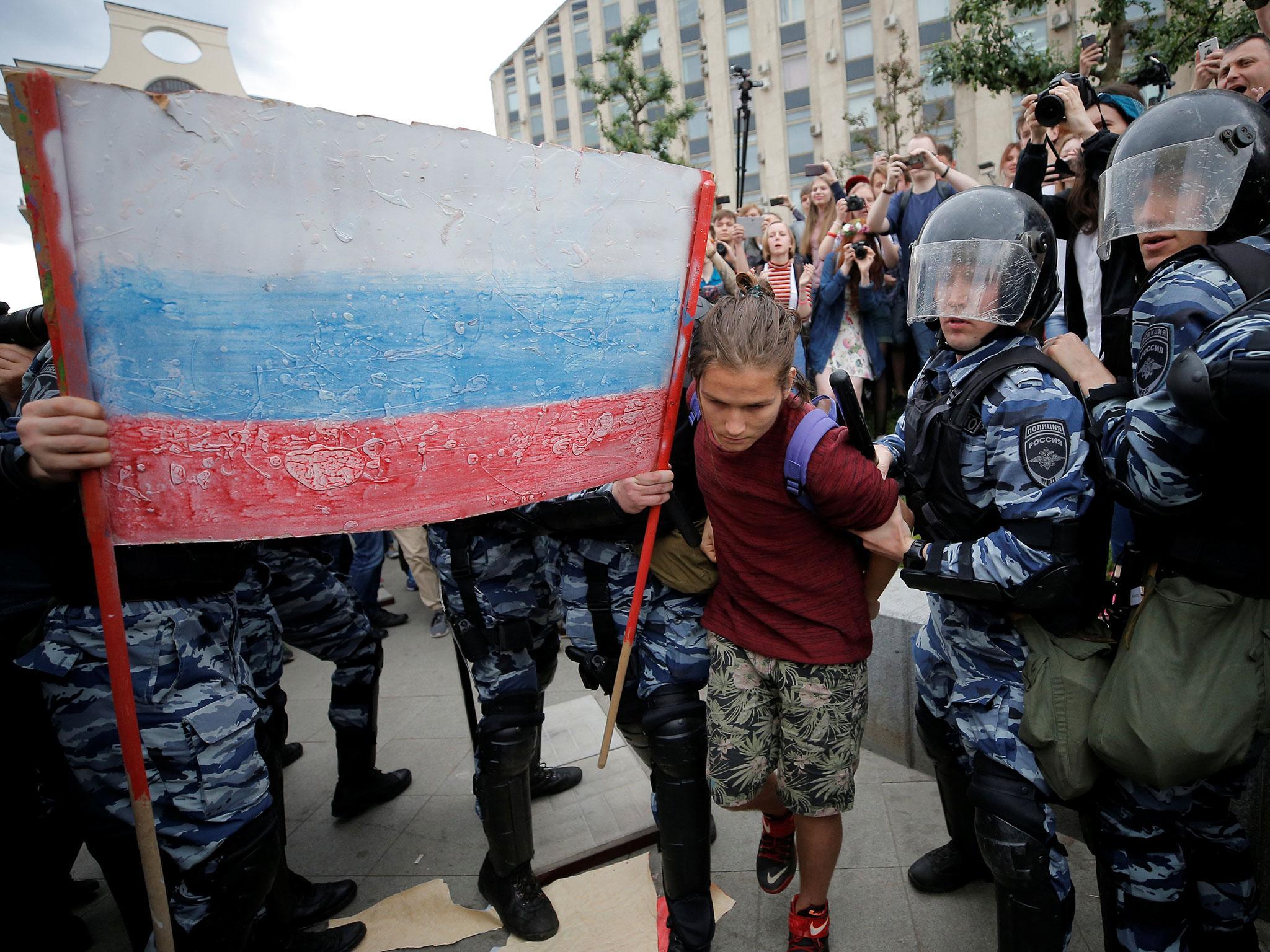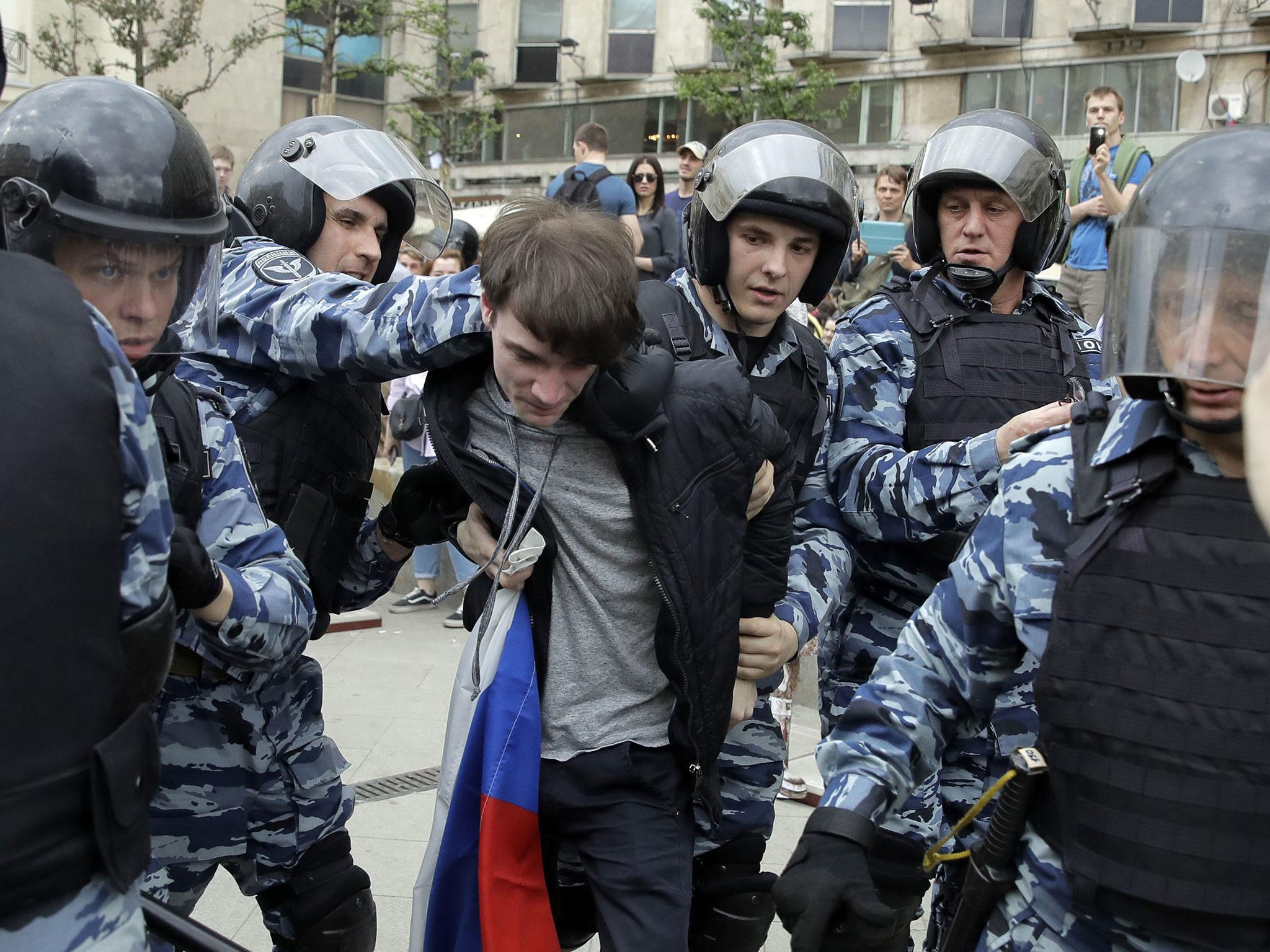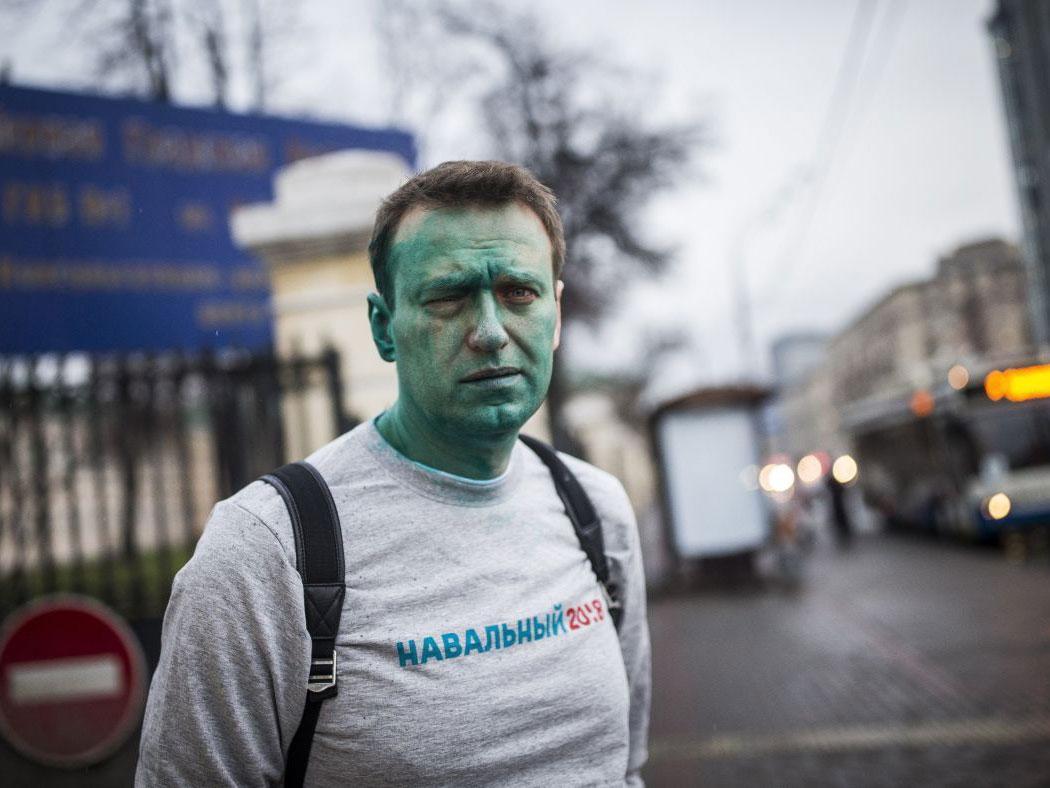Anti-Putin protests: Russian police arrest hundreds as thousands rally against Kremlin corruption
Pictures of teenage girls being arrested shared widely on social media as major critic is detained
Your support helps us to tell the story
From reproductive rights to climate change to Big Tech, The Independent is on the ground when the story is developing. Whether it's investigating the financials of Elon Musk's pro-Trump PAC or producing our latest documentary, 'The A Word', which shines a light on the American women fighting for reproductive rights, we know how important it is to parse out the facts from the messaging.
At such a critical moment in US history, we need reporters on the ground. Your donation allows us to keep sending journalists to speak to both sides of the story.
The Independent is trusted by Americans across the entire political spectrum. And unlike many other quality news outlets, we choose not to lock Americans out of our reporting and analysis with paywalls. We believe quality journalism should be available to everyone, paid for by those who can afford it.
Your support makes all the difference.Hundreds have been arrested as a swathe of protests against President Vladimir Putin take place across Russia.
Associated Press journalists witnessed at least 50 arrests in St Petersburg, Russia’s second-largest city, with Russian media reporting at least 300 arrests.
At least 200 protesters were detained by police near central Moscow’s Pushkin Square, Reuters reported.
Several teenage girls were arrested in St Petersburg, and authorities removed a large yellow inflatable duck, images on social media showed.
The leading critic of Mr Putin, Alexei Navalny, was detained by authorities in the capital half an hour before the demonstration was due to begin.
Police later confirmed the arrest, saying he could get up to 15 days in jail on charges of failing to follow police orders and violating public order.
Thousands of Russians are protesting against corruption, part of Mr Navalny’s long-shot drive to unseat Mr Putin next year, by harnessing anger over what he calls official fraud.

Moscow police blocked part of the street with trucks in a bid to block the movement of protesters, warning: “Any provocative actions from the protesters’ side will be considered a threat to public order and will be immediately suppressed.”
The protesters, some carrying Russian flags, were chanting loudly as Moscow riot police stood watch.
A regional security official, Vladimir Chernikov, told Ekho Moskvy radio that police would not interfere with demonstrators on the street – as long as they did not carry placards or shout slogans.

The prosecutor's office authorised a venue well away from the city centre, but Mr Navalny said the authorities had pressured firms into refusing to supply him and his allies with sound and video equipment, a move he said was designed to humiliate them.
For that reason, he said he was switching the venue to Tverskaya Street, central Moscow’s main avenue near the Kremlin.
Tverskaya, known in Soviet times as Gorky Street, was closed off to traffic for commemoration of the national holiday Russia Day, which includes people dressed in historical Russian costumes.
More than 1,000 protesters were arrested at a similar rally on 26 March.

Those protests took place in scores of cities across the country, the largest show of discontent in years and a challenge to Mr Putin’s dominance of the country.
The Kremlin has long sought to cast the opposition as a phenomenon of a privileged, Westernised urban elite out of touch with people in Russia's far-flung regions.
But the latest protests could demonstrate that it has more significant support throughout the vast country.
Mr Navalny’s website reported protests were held in more than six cities in the Far East, including the major Pacific ports of Vladivostok and Khabarovsk, and in Siberia’s Barnaul.
Eleven demonstrators were arrested in Vladivostok, according to OVD-Info, a website that monitors political repressions.

Mr Navalny has become the most prominent figure in an opposition that has been troubled by factional disputes. He focuses on corruption issues and has attracted a wide following through savvy use of internet video.
His report on alleged corruption connected to Prime Minister Dmitry Medvedev was the focus of the March protests.
Mr Navalny has announced his candidacy for the presidential election in 2018.
He was jailed for 15 days after the March protests. In April, he suffered damage to one eye after an attacker doused his face with a green antiseptic liquid.
Additional reporting by agencies

Join our commenting forum
Join thought-provoking conversations, follow other Independent readers and see their replies
Comments